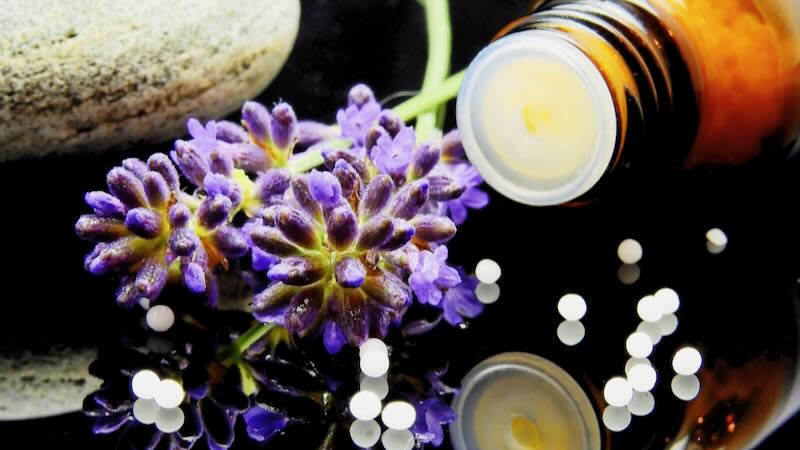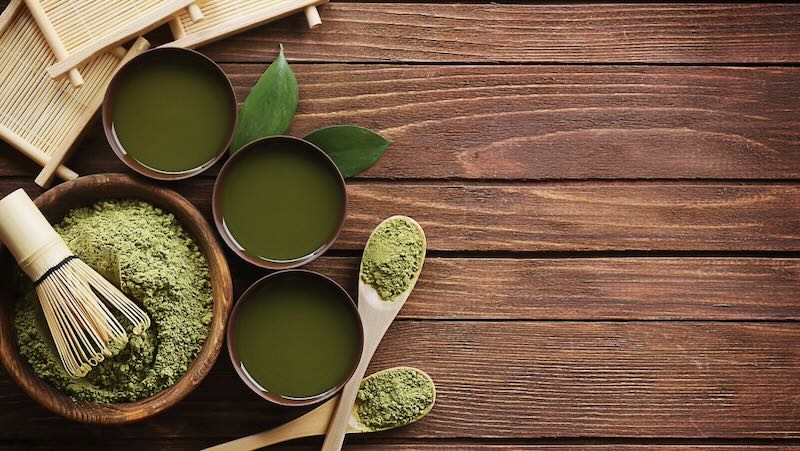AYUSH Systems
Ayurveda
Originating in India over 5,000 years ago, Ayurveda is a holistic system focused on balancing the three doshas—Vata, Pitta, and Kapha—to maintain health and prevent disease. It emphasizes personalized treatment through herbs, diet, detox therapies (Panchakarma), and lifestyle changes. Ayurveda is widely practiced across India, especially in Kerala and Maharashtra.
Yoga
Yoga is an ancient Indian discipline that harmonizes body, breath, and mind through postures, breathing techniques, and meditation. It promotes physical health, mental clarity, and spiritual growth. Widely practiced in India and globally, it is a cornerstone of wellness retreats and urban health centers.
Naturopathy
Naturopathy is a holistic healing system that uses natural elements—air, water, diet, sunlight, and fasting—to activate the body’s self-healing ability. It emphasizes detoxification and balance through non-invasive methods. Popular in wellness centers and retreats, it appeals to those seeking natural, drug-free health solutions.
Unani Medicine
Derived from ancient Greek (Yunani) and Arabic traditions, Unani was introduced to India around the 12th century. It is based on the balance of four bodily humors and emphasizes regimental therapy, diet, and herbal medicines. Predominantly practiced in Uttar Pradesh, Delhi, Telangana, and parts of Hyderabad.
Siddha Medicine
One of the oldest medical systems, Siddha originated in ancient Tamil Nadu and is based on balancing three humors (Vata, Pitta, Kapha) similar to Ayurveda. It incorporates herbal, mineral, and metal-based preparations, along with lifestyle and dietary regulation. Mainly practiced in Tamil Nadu and southern India.
Sowa-Rigpa (Tibetan Medicine)
Meaning “Science of Healing,” Sowa-Rigpa is rooted in Tibetan and Himalayan Buddhist culture, with influences from Ayurveda, Chinese, and Greek medicine. It is based on the concept of three humors (rLung, mKhrispa, Badkan) and the five elements. Primarily practiced in Ladakh, Sikkim, Arunachal Pradesh, and Himalayan regions.
Homeopathy
Developed in Germany in the 18th century by Dr. Samuel Hahnemann, Homeopathy follows the principle of “like cures like”, using highly diluted substances. It aims to stimulate the body’s natural healing response with minimal side effects. Introduced to India in the 19th century, it is now widely accepted and practiced nationwide, especially in West Bengal.
🌿 Ayurveda
A Journey to Balance, Nourishment, and Vital Energy
Ayurveda, literally meaning “Science of Life,” is rooted in the belief that health is a harmonious balance between the body, mind, senses, and soul. It views the human body as a matrix of three humors (Vata, Pitta, Kapha), seven tissues (Rasa, Rakta, Mamsa, Meda, Asthi, Majja, Shukra), and three waste products – urine (Mutra), stool (Mala), and sweat (Sweda). These components are continually formed and transformed by the digestion and assimilation of food, which is governed by the body’s biological fire, or Agni. A disturbance in any part of this delicate process can lead to disease.
Ayurveda emphasizes personalized care based on one’s unique body constitution, or Prakriti. It promotes preventive and curative practices including herbal remedies, dietary regulation, Panchakarma detox, daily routines (Dinacharya), and seasonal adaptations (Ritucharya). Instead of suppressing symptoms, it works to restore harmony to the whole system. Psychological wellbeing and spiritual alignment are also vital parts of Ayurvedic healing.
With over 5,000 years of history, Ayurveda offers a holistic and time-tested path to long-lasting health and inner peace.
More on Ayurveda

🧘♂️ Yoga
The Science of Inner Harmony: Unlocking Health Through Ashtanga Yoga
Yoga, derived from the Sanskrit root “Yuj” meaning to unite, is a holistic discipline aimed at achieving harmony between the body, mind, and soul. It is one of the six systems of Vedic philosophy and was systematized by Maharishi Patanjali through the Ashtanga Yoga or the Eightfold Path. These eight limbs—Yama (ethical restraints), Niyama (personal observances), Asana (physical postures), Pranayama (breath control), Pratyahara (withdrawal of senses), Dharana (concentration), Dhyana (meditation), and Samadhi (spiritual absorption)—guide individuals toward self-discipline, inner peace, and ultimately, liberation (moksha).
Regular practice of Yoga promotes physical well-being, mental clarity, emotional balance, and spiritual growth. It enhances oxygen circulation, strengthens immunity, calms the nervous system, and equips individuals to manage stress and prevent lifestyle-related disorders, making it both a preventive and promotive system of health.
More on Yoga🌿 Naturopathy
Healing by Nature: Awaken Your Body’s Inner Doctor
Naturopathy is a drugless, holistic system of healing that draws upon the inherent self-healing capacity of the human body. It is grounded in the belief that the human body is composed of five fundamental elements—Earth (Prithvi), Water (Jala), Fire (Agni), Air (Vayu), and Space (Akash)—and that disease is the result of imbalance among these elements due to accumulation of toxins and a deviation from natural living.
Naturopathy aims to restore this balance by eliminating toxins, improving lifestyle, and aligning with nature’s rhythms. It utilizes natural therapies such as diet and nutrition, hydrotherapy, mud therapy, massage, fasting, yoga, and sun exposure. Rather than treating symptoms in isolation, Naturopathy addresses the root cause of illness, thus preventing and curing chronic ailments. It emphasizes prevention, body purification, and promotion of overall health, empowering individuals to take responsibility for their well-being.
More on Naturopathy

🧪 Unani Medicine
Balancing Humors, Restoring Vital Harmony
Unani medicine is a Graeco-Arabic healing tradition that sees health as a state of equilibrium among four humors—Dam (blood), Balgham (phlegm), Safra (yellow bile), and Sauda (black bile). It is based on the principle that each person has a unique temperament (Mizaj) that influences their physical and emotional tendencies. Disease results when these humors become imbalanced due to lifestyle, environment, or diet.
Treatment is aimed at restoring this balance through herbal remedies, dietary plans, detoxification, massage, cupping (Hijama), and regimental therapies (Ilaj-bil-Tadbeer). The system also emphasizes hygiene, environment, and mental wellbeing. Diagnosis is made through detailed observation, pulse reading, and temperament analysis.
Unani is particularly effective in managing lifestyle disorders, arthritis, skin problems, and digestive issues. It treats both acute and chronic conditions with time-tested remedies that work in harmony with the body. This system blends science and tradition to offer a gentle yet effective route to healing and balance.
More on Unani🌿 Siddha Medicine
Tamil Nadu’s Sacred Science of Longevity
Siddha medicine, one of the oldest medical systems in the world, originated in South India and was developed by enlightened sages known as Siddhars. It views the human body as a microcosm of the universe, made up of five elements (earth, water, fire, air, and ether). Health is the balance among three humors – Vata (movement), Pitta (heat), and Kapha (structure), and disease is the result of their disturbance. The system also includes detailed knowledge of seven body tissues (Udal Thathukkal) and the importance of digestive fire, or Agni.
Treatments involve the use of herbal medicines, mineral preparations, lifestyle regulation, and detox therapies. Siddha medicine also emphasizes spiritual health, often combining yogic practices, breathing, and meditation. It has demonstrated efficacy in managing chronic diseases, arthritis, skin problems, and metabolic disorders.
With deep roots in ancient Tamil culture, Siddha is a spiritual-scientific tradition that offers total wellbeing. It continues to thrive as a comprehensive healing system blending nature, medicine, and mysticism.
More on Siddha

⚗️ Homeopathy
A Gentle Science That Heals from Within
Homeopathy is a holistic medical system based on the natural law of healing—“Similia Similibus Curantur”, or “like cures like.” It was systematized by Dr. Samuel Hahnemann in the 18th century and has since grown into a global system of medicine. A substance that causes symptoms in a healthy person is used in extremely diluted form to treat similar symptoms in a sick person. These medicines undergo a process called potentization, which enhances their healing effect while removing toxicity. Homeopathy believes in individualized care, considering a person’s physical, emotional, and mental state before prescribing a remedy.
It is effective in treating chronic conditions, allergies, behavioral disorders, migraines, and more. Because of its non-toxic and side-effect-free nature, it is ideal for infants, the elderly, and even animals.
Homeopathy doesn’t suppress symptoms but gently activates the body’s self-healing mechanism. It remains a time-tested and trusted system that treats the root cause of illness and restores overall health.
More on Homeopathy🧭 Sowa-Rigpa (Tibetan Medicine)
Tibetan Wisdom for Inner and Outer Harmony
Sowa-Rigpa, meaning “The Science of Healing,” is a traditional medical system practiced in Tibet, Ladakh, Sikkim, Arunachal Pradesh, and other Himalayan regions. It draws upon ancient Indian, Chinese, and Tibetan medical knowledge to create a unique and holistic healing path.
Sowa-Rigpa is based on the balance of three energies – rLung (wind), mKhris-pa (bile), and Bad-kan (phlegm)—which correspond closely with the Ayurvedic doshas. Disease arises when these energies are disturbed by improper diet, behavior, emotions, or seasonal changes. Diagnosis involves pulse reading, urine analysis, visual observation, and questioning.
Treatments include herbal medicines, diet modification, spiritual practices (like mantras), acupuncture, massage, and meditation. Sowa-Rigpa pays deep attention to both physical and mental balance, promoting long-term wellbeing through compassionate, ethical healing practices. It is widely respected for managing cold-related illnesses, digestive disorders, liver conditions, and stress.
Sowa-Rigpa is more than medicine—it is a spiritual science of balance between body, mind, and environment.
More on Sowa-Rigpa
🕉️ Introduction to AYUSH
Ancient Wisdom, Modern Relevance.
AYUSH represents a collective of India’s time-honored healthcare systems: Ayurveda, Yoga, Naturopathy, Unani, Siddha, and Homeopathy. Rooted in thousands of years of tradition, these systems emphasize holistic well-being, preventive care, and natural healing. The term AYUSH stands for life (Ayus) and longevity (Usha), reflecting its deep cultural and spiritual foundations.
Each system offers a unique philosophy of health—ranging from balancing bodily energies and mental peace to aligning with nature and personalized remedies. With growing global acceptance and government support, AYUSH is increasingly seen as a powerful complement to modern medicine. It bridges the ancient and the contemporary, offering safe, sustainable, and culturally rich alternatives for lifelong wellness.
🌿 What is AYUSH?
Diverse Paths to Holistic Health.
AYUSH is an umbrella term for six traditional systems of medicine—Ayurveda, Yoga, Naturopathy, Unani, Siddha, and Homeopathy—each with its own philosophy and healing approach. While distinct in methods, all AYUSH systems share a common goal: restoring balance in the body, mind, and spirit through natural means.
Ayurveda and Siddha focus on bodily energies (doshas), Unani on humoral theory, while Yoga and Naturopathy emphasize self-healing through lifestyle and nature. Homeopathy offers a unique, minimal-dose remedy approach based on the principle of ’like cures like.'
Compared to modern (allopathic) medicine, which often targets symptoms through pharmaceuticals, AYUSH systems prioritize root-cause treatment, prevention, and personalized care. Together, they offer a complementary and integrative healthcare model, gaining relevance in today’s wellness-driven world.
🌱 Why AYUSH?
Healing the Whole, Not Just the Symptoms.
AYUSH stands out for its holistic approach to health, addressing the physical, mental, and spiritual well-being of an individual. Unlike symptom-based treatments, AYUSH systems emphasize prevention, lifestyle correction, and long-term wellness.
Whether it’s balancing doshas in Ayurveda, breath-mind harmony in Yoga, or nature-based healing in Naturopathy, each path is rooted in centuries of practice. These systems offer personalized care, considering an individual’s constitution, environment, and habits. Treatments are largely natural, non-invasive, and with minimal side effects, making them safer for long-term use.
In an age of rising chronic illnesses and stress-related disorders, AYUSH provides a gentle yet powerful alternative that empowers people to take charge of their health.
⚙️ How AYUSH Works
Ancient Science, Personalized Healing.
AYUSH systems operate on the belief that health is a state of balance within the body, mind, and environment. In Ayurveda, health revolves around the equilibrium of three doshas—Vata, Pitta, and Kapha, while Yoga harnesses the flow of Prana (life energy) through breath, posture, and meditation. Unani and Siddha focus on balancing internal humors or energies, using diet, detox, and natural medicines. Homeopathy stimulates the body’s self-healing response using minute doses of natural substances, and Naturopathy leverages earth, water, sunlight, and fasting for internal cleansing.
Diagnosis is deeply individualized, often involving pulse reading, tongue analysis, or lifestyle review. Treatments include Panchakarma detox, herbal decoctions, yoga asanas, breathing techniques, regimental therapies, and strict dietary regimens—creating a comprehensive path to natural, sustainable wellness.
🧪 The Science Behind AYUSH
Bridging Tradition with Modern Evidence.
AYUSH systems, though rooted in ancient knowledge, are increasingly being validated through modern scientific research and clinical trials. Institutes across India and the world are conducting evidence-based studies to explore the efficacy of herbal medicines, yoga practices, and traditional therapies.
Technologies like AI, genomics, and bioinformatics are now being used to decode the mechanisms behind age-old remedies. Government bodies such as CCRAS, CCRH, and NIN are actively funding research and publishing peer-reviewed findings.
While challenges remain in standardizing formulations and proving long-term efficacy by modern metrics, progress is steady and promising. This growing scientific acceptance is helping integrate AYUSH into mainstream healthcare and global wellness ecosystems.
🏛️ Government Initiatives
Government’s Vision for Traditional Healthcare.
The Ministry of AYUSH, established by the Government of India, plays a pivotal role in promoting and regulating the country’s traditional systems of medicine. Its mission is to mainstream AYUSH into national health policy through education, research, and service delivery. Initiatives like the National AYUSH Mission (NAM) support infrastructure development, quality control, and integration with public healthcare. The launch of AYUSH Health and Wellness Centres across India aims to provide accessible, holistic care at the grassroots level.
Collaborations with the World Health Organization (WHO) further strengthen global recognition and standardization of AYUSH practices. The government also offers research grants, practitioner support, and entrepreneurship funding to boost innovation and outreach. Together, these efforts are making AYUSH a trusted, accessible choice for millions.
🧾 Insurance & AYUSH
AYUSH Coverage You Can Count On.
AYUSH treatments are now increasingly covered under mainstream health insurance policies, making holistic healthcare more accessible and affordable. Many insurers in India, including public and private players, offer plans that include Ayurveda, Yoga, Unani, Siddha, and Homeopathy treatments when taken at recognized centers.
To ensure quality, AYUSH hospitals must be NABH-accredited, which guarantees standardized care and infrastructure. Leading insurers like New India Assurance, Star Health, and HDFC ERGO provide AYUSH-inclusive policies.
To claim benefits, it’s essential to maintain proper documentation, bills, and treatment prescriptions from registered AYUSH practitioners. Always check policy terms for AYUSH coverage caps and hospital network lists. With the right plan, you can now enjoy natural healing backed by financial peace of mind.
🏥 AYUSH Service Providers
Where Healing Lives – Finding AYUSH Services Near You.
AYUSH services are now widely available through a growing network of government and private hospitals, dispensaries, and wellness centers across India and abroad. From full-fledged AYUSH hospitals and Panchakarma therapy centers to specialized Yoga retreats and Homeopathy clinics, these facilities offer personalized, holistic care.
The Ministry of AYUSH has also launched telemedicine and online consultation platforms, making expert advice just a click away. Wellness seekers can explore certified centers offering therapies like detox, rejuvenation, stress management, and chronic disease support.
Many cities have multi-specialty AYUSH hubs that combine several systems under one roof for integrated treatment. With quality standards, trained professionals, and growing accessibility, AYUSH services are bringing traditional healing into the modern healthcare landscape.
📚 Education & Courses
Learning to Heal – AYUSH Education & Career Pathways.
AYUSH offers a rich array of recognized degree and diploma courses such as BAMS (Ayurveda), BHMS (Homeopathy), BUMS (Unani), BSMS (Siddha), and BNYS (Naturopathy & Yoga). These programs are conducted by accredited universities and government-approved colleges across India, with oversight from respective regulatory councils.
The curriculum blends classical texts, modern medical science, clinical training, and hands-on therapies, typically spanning 4.5 to 5.5 years including internships. Several institutions also offer postgraduate and doctoral research opportunities in specialized areas of AYUSH.
With increasing global interest, foreign students and NRIs are encouraged to apply through special quotas and government scholarships. The field offers not just a career in medicine, but a lifelong journey into wellness, research, and global healthcare integration.
🎓 Certification & Regulation
Certified to Care – Regulation & Trust in AYUSH Practice.
AYUSH systems are governed by robust regulatory bodies like the National Commission for Indian System of Medicine (NCISM) and the National Commission for Homeopathy (NCH), ensuring standardized education and ethical practice. These councils oversee curriculum design, institution approval, and practitioner licensing, maintaining the integrity of traditional healthcare.
Every qualified practitioner must be registered with their respective state or national medical councils to legally practice. Hospitals, clinics, pharmacies, and wellness centers are encouraged to obtain NABH or state-level accreditation, ensuring quality and safety for patients.
Herbal products and medicines are also regulated under AYUSH pharmacopoeial standards. This structured framework builds public confidence and ensures that AYUSH services meet both traditional values and modern expectations.
💼 Career Opportunities in AYUSH
Healing Careers – Unlocking Opportunities in AYUSH.
AYUSH opens doors to a wide range of rewarding and purpose-driven careers in both public and private sectors. Graduates can enter clinical practice in Ayurveda, Homeopathy, Unani, Siddha, Naturopathy, or Yoga therapy, either independently or in hospitals.
There is strong demand in teaching, academic research, and pharmacology, supported by government and institutional funding. The booming wellness and alternative healthcare industry offers roles for yoga instructors, holistic nutritionists, wellness consultants, and more. Budding entrepreneurs can explore herbal pharmacies, wellness centers, Panchakarma clinics, or even dive into medical tourism and global health collaborations.
With rising global interest in natural healing, AYUSH professionals are increasingly finding cross-border career opportunities. This is not just a job—it’s a mission to bring ancient healing to the modern world.
💊 AYUSH Products & Remedies
Nature’s Pharmacy – Trusted AYUSH Products & Remedies.
AYUSH offers a vast range of natural remedies, including herbal medicines, oils, tonics, decoctions, and proprietary formulations rooted in centuries-old wisdom. These products are manufactured under strict Good Manufacturing Practices (GMP) and often carry the AYUSH Premium Mark, ensuring quality and international export readiness. Standardization is guided by the AYUSH Pharmacopoeia, which defines purity, safety, and efficacy for ingredients and formulations. Licensed manufacturers and pharmacies produce everything from immunity boosters to chronic care solutions using time-tested recipes.
With growing demand, AYUSH products are now available online through trusted platforms, making access easy and convenient. However, it’s important to consult certified practitioners and avoid self-medication to ensure safe and appropriate use. AYUSH remedies combine the healing power of nature with modern quality assurance, making them a valuable addition to daily wellness.
🌿 AYUSH Self-Care
Live Well, Naturally – Everyday Self-Care with AYUSH.
AYUSH encourages a balanced, mindful lifestyle through age-old practices like Dinacharya (daily routine) and Ritucharya (seasonal regimen) that align your body with nature’s rhythms. Simple habits such as oil pulling, herbal drinks, nasal cleansing, and early rising can enhance immunity and vitality. Yoga and meditation are core self-care tools, offering physical fitness, mental clarity, and emotional balance right from your home.
AYUSH also emphasizes wholesome, seasonal diets based on individual body types (Doshas), promoting digestion, detox, and longevity. Time-tested home remedies using spices, herbs, and kitchen ingredients provide quick relief for common ailments.
With these practices, AYUSH empowers you to take charge of your health through preventive care and conscious living. It’s not just medicine—it’s a lifestyle of harmony and wellness.
🌐 Digital AYUSH
Healing Goes Digital – AYUSH in the Era of Digital India.
AYUSH is embracing technology through innovative digital platforms that bring traditional healing to your fingertips. With eSanjeevani – AYUSH Telemedicine, users can consult certified AYUSH doctors from anywhere in India, ensuring accessible and affordable care.
The National AYUSH Morbidity and Standardized Terminologies Portal (NAMSTP) is creating a unified digital language for AYUSH systems, aiding research and clinical documentation. Mobile apps, e-libraries, and online portals offer access to classical texts, wellness tips, and treatment protocols.
Wellness enthusiasts can now use AYUSH-based trackers and health tools to monitor daily routines, diet, and fitness. These advancements ensure that ancient wisdom meets modern convenience, making AYUSH a vital part of Digital India’s health transformation.
🌍 AYUSH and Global Recognition
Global Roots, Global Reach – AYUSH on the World Stage.
AYUSH is gaining international recognition as the world embraces holistic and preventive healthcare. Global collaborations, including AYUSH information cells and wellness centers in countries like the USA, Germany, and Mauritius, are spreading India’s traditional wisdom worldwide.
The World Health Organization (WHO) has partnered with the Ministry of AYUSH to support traditional medicine systems, validating their relevance through global research initiatives. AYUSH products—ranging from herbal medicines to wellness supplements—are being exported to over 100 countries, backed by quality certifications and increasing consumer trust.
India is emerging as a hub for medical and wellness tourism, attracting visitors seeking authentic Ayurveda treatments, yoga retreats, and detox therapies. These efforts are helping AYUSH become a trusted alternative and complementary healthcare solution globally. From local roots to global healing—AYUSH is making its mark across borders.
📈 Research & Development
Rooted in Tradition, Driven by Research – AYUSH R&D Advancements.
AYUSH is backed by a strong research ecosystem led by specialized councils such as CCRAS (Ayurveda), CCRYN (Yoga & Naturopathy), CCRUM (Unani), CCRS (Siddha), and CCRH (Homeopathy). These institutions conduct clinical trials, pharmacological studies, and publish findings in peer-reviewed journals to build scientific credibility. Cutting-edge collaborations with IITs, AIIMS, and ICMR are bridging the gap between traditional knowledge and modern science.
Government-funded projects are exploring areas like cancer care, diabetes management, mental health, and lifestyle disorders using AYUSH modalities. New drug development, standardization of medicines, and data-driven practices are continually expanding the evidence base.
This focused R&D effort ensures AYUSH remains a dynamic, evolving system grounded in both ancient insights and scientific validation.
📣 AYUSH Awareness Campaigns
Celebrating Wellness – AYUSH Events That Inspire Health.
AYUSH connects with the masses through vibrant events and awareness campaigns that promote holistic health and traditional wisdom. Celebrations like AYUSH Day and International Yoga Day witness global participation, uniting millions in the practice of wellness. Health camps, seminars, exhibitions, and fairs across India offer free consultations, therapy demos, and educational sessions on AYUSH practices. Schools, colleges, and communities actively engage through yoga marathons, poster competitions, and wellness workshops.
The Ministry of AYUSH also runs year-round public participation drives to spread knowledge about preventive healthcare and lifestyle modifications. These initiatives not only strengthen public trust but also bring AYUSH systems into the everyday lives of people. With every event, AYUSH becomes more than a treatment—it becomes a celebration of healthy living.
👥 AYUSH for All
Inclusive Healing – AYUSH for Every Body and Everybody.
AYUSH is designed to serve all age groups and communities, offering gentle yet effective care tailored to individual needs. Its child-friendly remedies, gender-sensitive treatments, and elderly wellness routines make it a truly inclusive system. From menstrual health to prenatal care, AYUSH supports women’s health holistically, while also addressing mental well-being through yoga, meditation, and herbal therapies.
In rural and tribal areas, AYUSH plays a vital role by providing accessible, low-cost healthcare solutions rooted in local traditions. Government initiatives further empower these communities with mobile AYUSH units and outreach programs.
Whether it’s urban stress relief or village healing, AYUSH ensures that wellness is a right, not a privilege—truly making it “Healthcare for All.”
📞 How to Get Started
Your Wellness Journey Begins Here – Getting Started with AYUSH.
Taking your first step into AYUSH is simple, safe, and empowering. Start by exploring basic wellness practices like yoga, meditation, and herbal self-care under proper guidance. To ensure safety and authenticity, always consult certified AYUSH practitioners or visit NABH-accredited centers. Government portals and apps can help locate nearby AYUSH hospitals, wellness centers, and verified doctors.
For personalized queries, you can reach out to AYUSH helplines, state-wise contact points, and eSanjeevani telemedicine services. Many resources are now available online to help beginners navigate different AYUSH systems with confidence.
Whether you’re seeking prevention, relief, or lifestyle balance—AYUSH is ready to walk with you on your journey to holistic health.
Important Institutions
FAQ on AYUSH
What does AYUSH stand for?
AYUSH stands for Ayurveda, Yoga & Naturopathy, Unani, Siddha, Sowa-Rigpa, and Homeopathy—six traditional systems of medicine officially recognized in India.
Is AYUSH scientifically valid?
Yes, many AYUSH practices are supported by scientific research, clinical trials, and centuries of practical use. The Ministry of AYUSH actively promotes evidence-based validation of therapies.
How is AYUSH different from modern medicine?
AYUSH systems focus on holistic healing, prevention, and lifestyle balance, while modern (allopathic) medicine primarily targets symptomatic relief and emergency care.
Can AYUSH be used along with modern medicine?
Yes, integrative approaches combining AYUSH and modern medicine are increasingly adopted, especially under qualified practitioners. Always consult your doctor before combining treatments.
Is AYUSH safe for children and elderly people?
When administered under trained practitioners, AYUSH therapies are generally safe and often customized for children, elderly, and special conditions.
Where can I find AYUSH hospitals or clinics?
You can find AYUSH hospitals, dispensaries, and wellness centers across India. Many are listed on official AYUSH directories and state portals.
Are AYUSH doctors certified?
Yes, AYUSH practitioners must have recognized degrees and licenses from governing bodies such as NCISM and NCH to practice legally.
Is AYUSH covered under health insurance?
Many insurance providers now include AYUSH treatments under coverage. Look for AYUSH-inclusive plans and NABH-accredited hospitals.
Can I consult AYUSH doctors online?
Yes, platforms like eSanjeevani offer free telemedicine services for AYUSH consultations. Several private apps also offer certified virtual consultations.
What are the benefits of AYUSH therapies?
AYUSH therapies offer personalized healing, fewer side effects, long-term wellness, and natural treatments rooted in time-tested traditions.
What are some popular AYUSH home remedies?
Examples include turmeric milk for immunity, tulsi for cough, triphala for digestion, and yoga for stress relief. Always verify remedies with a qualified expert.
Is AYUSH effective for chronic diseases?
Many chronic lifestyle disorders such as diabetes, arthritis, and asthma respond well to AYUSH therapies, especially when combined with lifestyle changes.
Are AYUSH courses available in India?
Yes, India offers recognized degrees like BAMS, BHMS, BNYS, and MD programs in AYUSH systems through accredited universities and colleges.
Can foreigners study AYUSH in India?
Yes, foreign and NRI students can enroll in AYUSH programs under reserved quotas, with proper eligibility and visa procedures.
Is AYUSH regulated by the Indian government?
Yes, the Ministry of AYUSH oversees policies, regulation, education, and research. Licensing is managed by bodies like NCISM and NCH.
What is the role of WHO in AYUSH?
WHO supports traditional medicine globally and collaborates with India on guidelines, research, and promoting AYUSH systems worldwide.
Can AYUSH help improve mental health?
Yes, Yoga, Ayurveda, and Homeopathy have therapeutic approaches for anxiety, depression, and overall mental well-being through natural, lifestyle-focused interventions.
How can I start using AYUSH safely?
Start with certified practitioners, follow government directories, and avoid self-medication. Choose therapies based on your health goals and conditions.
Are AYUSH medicines available online?
Yes, AYUSH products like herbal oils, tonics, and tablets are available online from licensed brands. Ensure the seller is GMP-certified.
What are some key AYUSH apps and portals?
Key digital platforms include eSanjeevani (telemedicine), NAMSTP (terminology portal), Yoga Certification Board, and various mobile apps for health tracking.